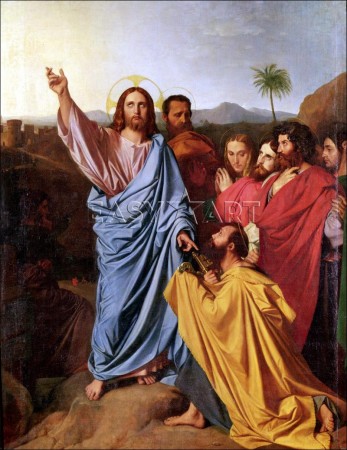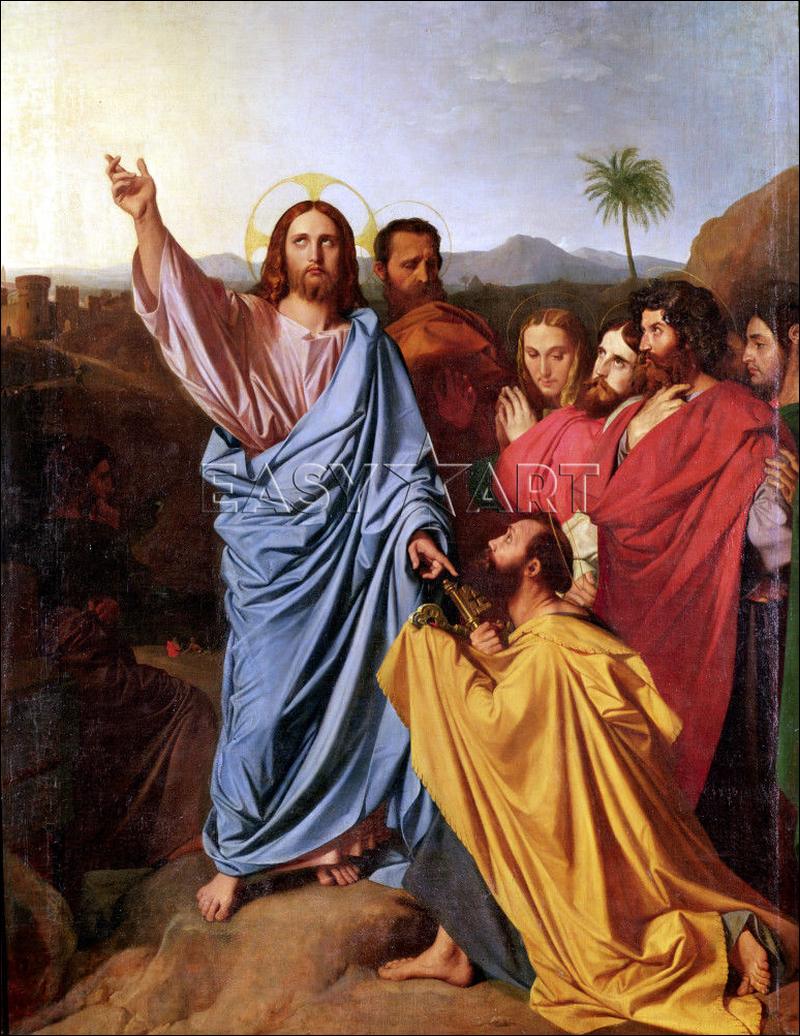What is Jesus’ relationship to the new Christian community? Did he leave any provision for its development? To answer these questions we must look at one of the most controversial verses in the New Testament. Jesus says, at Caesarea Philippi:
I tell you, you are Peter, and on this rock I will build my church, and the powers of death shall not prevail against it ( Matt. 16: 18).
One of the most fundamental differences between Protestants and Roman Catholics hinges on how this verse is interpreted. The Roman Catholic says: Here Jesus gives Peter unique power as the head of the Church; Peter is the rock on which it is built. Peter transmits this power to his successor, and that successor to his successor, and so on in unbroken succession, right down to the present pope. Only where the pope is honored as the vicar of Christ on earth does Christ’s Church truly exist. Any Church that does not so honor the pope is not part of the true Church.
The Protestant way of putting it will take a little longer:
-
Some Protestants feel that the words did not come from the lips of Jesus, but were added later. It seems clear to them that if the whole future of Christendom depended on the idea this verse expresses, it would have been mentioned more than once (the other Gospels all omit the verse). This, of course, is only negative reasoning from silence and is not conclusive by itself.
-
Many more Protestant scholars will grant that Jesus spoke the words. But remember, they go on, the context of the statement. Jesus has asked, “Who do you say that I am?” and Peter has replied, “You are the Christ.” So the crucial question is: What is the “rock” upon which the Church is to be built? The Protestant holds that the “rock” is Peter’s declaration that “Jesus is the Christ.” Where that faith is present, there is the Church. Thus the verse is to be interpreted, “You are Peter, and on this rock [of your faith in me] I will build my church.”
-
But even, the Protestant continues, if the meaning were that Peter himself were the rock, there would be no ground for assuming that Peter’s power was passed on to his “successors.” The Protestant claims that the apostles, rather than bequeathing some unusual powers to their successors, bequeathed their testimony, their witness, which was contained in the pages of the New Testament. The Church is thus found where men maintain fidelity to the truth proclaimed in the New Testament that “Jesus is the Christ.” It is that faith which distinguishes the Church today, just as it distinguished the Church nineteen hundred years ago.
Views: 371





